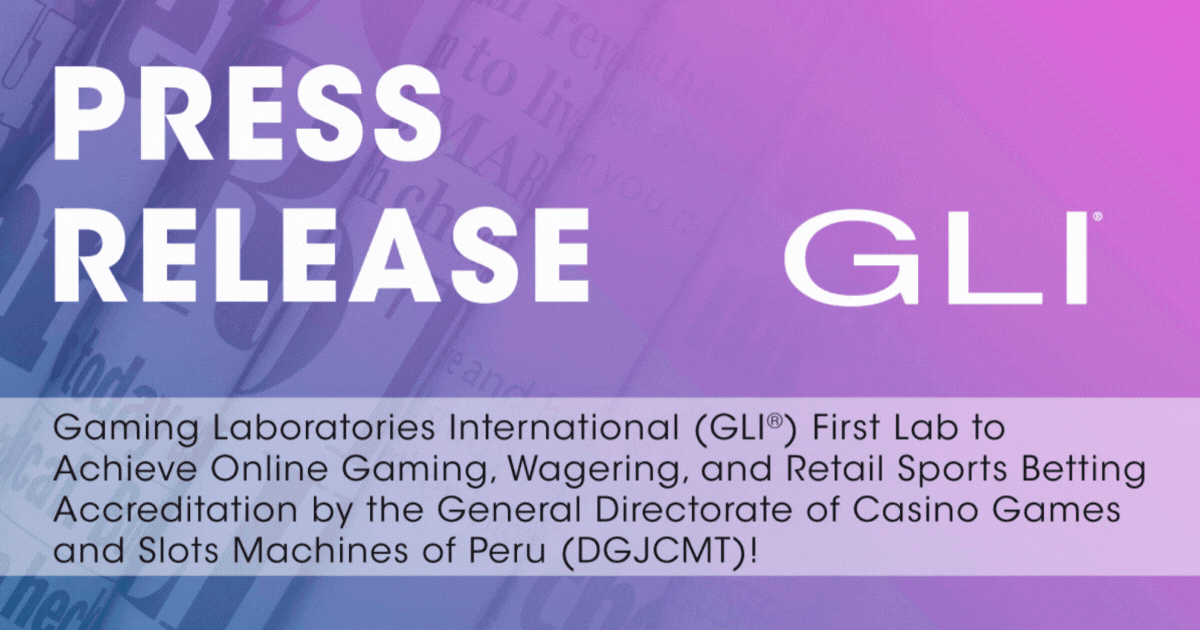
GLI® First Lab to Achieve Online Gaming, Wagering, and Retail Sports Betting Accreditation by the General Directorate of Casino Games and Slots Machines of Peru
Gaming Laboratories International (GLI®) is the first lab to achieve accreditation to test online gaming, wagering, and retail sports betting in Peru. The license expands a long-standing relationship between GLI and DGJCMT from beyond land-based testing to the fast-paced world of online gaming, wagering, and retail sports betting.
This accreditation formally approves GLI to test and audit the wide variety of online gaming and wagering offerings and retail sports betting under the new law and decree published in 2023.
“We are grateful to the DGJCMT for the clarity and transparency of this new accreditation process for Peru. With this accreditation, we are reconfirming our commitment with the regulator and the industry by being ready to fulfill their compliance needs to achieve the very important deadlines that this new regulation establishes for the industry to continue to operate and thrive. We can only expect Peru to become, once again, a regulatory model for the region and the world,” said GLI President & CEO James Maida.
“For the last 26 years, we have been privileged to witness the integrity and professionalism of the Peru regulatory entity through its leadership and professionals. It has been a regulatory model for many jurisdictions around Latin America because of its indisputable reputation and their thorough regulatory process, and because of the dedication of their team,” he added.
The accreditation is the latest in a series of milestones for GLI in the region. GLI has been working with regulators and lotteries across the Latin American and Caribbean industry for more than 26 years. Specific to Peru, GLI has been providing a wide range of services since 1998, when GLI became the first laboratory accredited in the country and the first in Latin America. Peru was the first Latin American country to adopt technical standards and the certification process, establishing a formal laboratory accreditation process.
GLI celebrates the regulatory process that took place from its inception to its publication, following the tradition of public comments and meetings to consider feedback from industry stakeholders, resulting in a vanguardist, modern, and agile regulation. Not long ago, the DGJCMT, with the cooperation of the Peru gaming industry, achieved the interconnection of more than 80,000 gaming machines.










